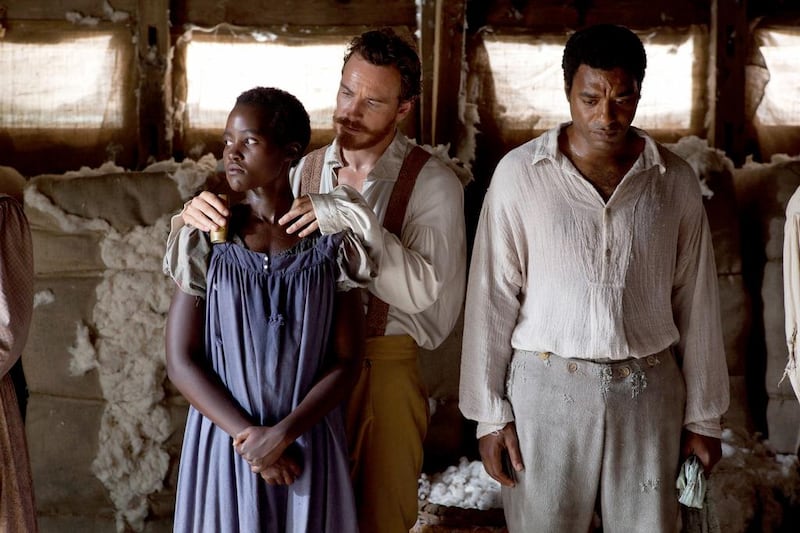12 Years a Slave
Director: Steve McQueen
Starring: Chiwetel Ejiofor, Michael Fassbender, Lupita Nyong’o, Brad Pitt, Benedict Cumberbatch ⋆⋆⋆⋆
Already a prize-winning sensation and high-odds Oscar contender, the British visual artist Steve McQueen’s third feature film is his most stylistically conventional yet, but also his most dramatically substantial and emotionally powerful. It tells the remarkable true story of Solomon Northup, a carpenter and musician from New York who was lured to Washington in 1841 and illegally sold into slavery. A cultured free man, Northup was forced to deny his identity and conceal his education to survive in a nightmarish Deep South ruled by racist lynch mobs and cruel plantation bosses. The British actor Chiwetel Ejiofor gives a multilayered performance as Northup, while the Kenyan-born screen newcomer Lupita Nyong’o is also terrific as his fellow slave Patsey. McQueen’s regular leading man Michael Fassbender radiates real psychotic menace as the sadistic landowner Epps. Shot in sumptuous 35mm widescreen format, with a lush string score by Hans Zimmer, 12 Years a Slave looks and sounds like an old-fashioned epic. But for all its high-gloss polish, it remains a European film by an uncompromising director who resolutely avoids Hollywood sentimentality, instead casting an unflinching eye on the savage and systematic violence that made slavery possible. This gripping real-life horror movie makes for uncomfortable but essential viewing.
[ artslife@thenational.ae ]





